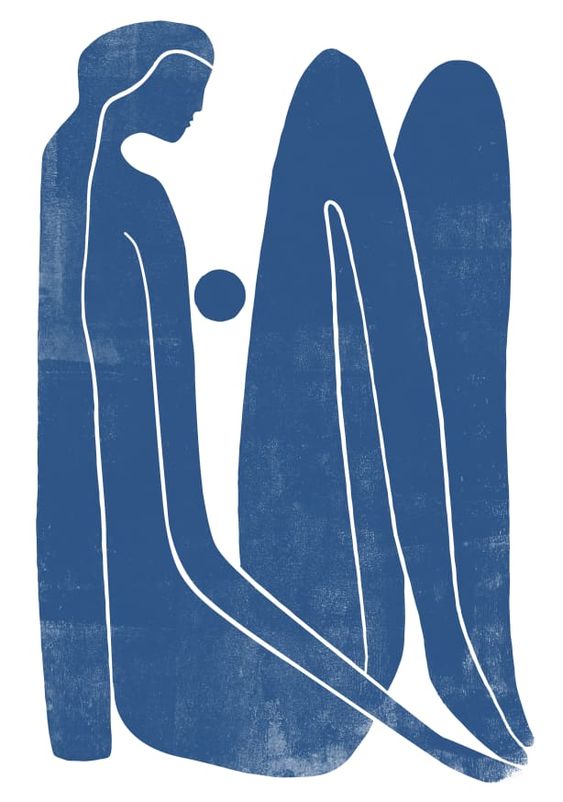 When Saturn forms a conjunction, square, or opposition with Neptune in the natal chart, it makes for some interesting dynamics between these two planets’ energies. This celestial combination has both positive and challenging aspects, impacting how individuals ground their inspirations, dreams, and longings into practical realities. On one hand, Saturn acts as a stabilizing force for Neptune’s immense creativity, imagination, and symbolic life. It helps anchor these lofty ideas and visions into tangible and achievable forms. Saturn’s influence brings discipline, structure, and focus, which allows individuals to manifest their artistic, spiritual, or healing aspirations in a concrete manner. This alignment fosters a deep sense of responsibility and dedication towards their chosen path.
When Saturn forms a conjunction, square, or opposition with Neptune in the natal chart, it makes for some interesting dynamics between these two planets’ energies. This celestial combination has both positive and challenging aspects, impacting how individuals ground their inspirations, dreams, and longings into practical realities. On one hand, Saturn acts as a stabilizing force for Neptune’s immense creativity, imagination, and symbolic life. It helps anchor these lofty ideas and visions into tangible and achievable forms. Saturn’s influence brings discipline, structure, and focus, which allows individuals to manifest their artistic, spiritual, or healing aspirations in a concrete manner. This alignment fosters a deep sense of responsibility and dedication towards their chosen path.
However, the Saturn-Neptune connection can also give rise to difficulties. Saturn’s tendency to impose boundaries and limitations can sometimes repress or frustrate Neptune’s chaotic and boundless world. As a result, the individual may feel isolated or challenged in expressing their aspirations fully. The pressure to meet high ideals and the fear of inadequacy can lead to feelings of guilt, depression, or a sense of hopelessness. Individuals with this aspect may experience a constant inner struggle between the yearning for higher meaning, unity, and spiritual connection represented by Neptune and the need to navigate the harsh realities of life represented by Saturn. The desire to contribute to the greater whole, offer gifts to humanity, and tap into collective feelings is a hallmark of Neptune’s influence. This may drive them towards artistic endeavors, creative pursuits, writing, or any form of expression that seeks to touch the hearts of others.
The Saturn-Neptune combination can also pull individuals towards healing professions, medicine, charity work, or spiritual practices. The need to be an authority in their chosen field may arise from Saturn’s influence, leading them to leave a lasting impact on the imaginative or spiritual realm. Despite the challenges, the Saturn-Neptune aspect also holds the potential for profound spiritual growth and transformation. The path of sacrifice, duty, and self-discipline can lead to a deeper connection with the higher self and a sense of purpose that goes beyond personal achievements. By embracing the blend of Saturn’s realism and Neptune’s idealism, individuals may find a unique balance that allows them to manifest their dreams while staying grounded in reality.
The Saturn-Neptune aspect requires conscious awareness and a willingness to work with the energies of both planets. It calls for the expression of creativity, spirituality, and the ability to manifest dreams, while also recognizing the importance of structure, discipline, and the ability to confront challenges with determination and resilience. Through this integration, individuals can find fulfillment in expressing their gifts, contributing to the world, and connecting to a higher source for spiritual growth and replenishment.
Liz Greene’s book “Neptune and the Quest for Redemption” sheds light on how individuals with this aspect may seek to fill a spiritual void or cope with the overwhelming emotions and struggles they experience. The Saturn-Neptune aspect can present significant challenges on both physical and psychological levels, and there is a potential for the manifestation of drug and alcohol addiction as a means of escaping the difficulties posed by this aspect.
Saturn’s influence often demands responsibility, self-discipline, and adherence to societal norms. When in challenging aspect with Neptune, the individual may find it difficult to live up to these expectations and cope with the pressure. In response, they might turn to substances like drugs or alcohol as a way to temporarily numb their fears, anxieties, and feelings of inadequacy. These substances may provide an escape from the harsh realities and responsibilities that Saturn represents.
The loss of control that accompanies drug and alcohol addiction can become a dangerous spiral, exacerbating the challenges of the Saturn-Neptune aspect. Instead of addressing the issues at hand, the individual may find themselves trapped in a cycle of escapism, hindering their personal growth and achievement. On a psychological level, the Saturn-Neptune aspect can contribute to fearfulness, anxiety, and the development of various phobias. The blurring of boundaries between the realistic and idealistic realms, which is a hallmark of Neptune’s influence, can lead to confusion and uncertainty in the individual’s life. This lack of clarity and direction may manifest in physical ailments and a general sense of illness or tiredness, further impeding their ability to achieve their goals.
When individuals with this aspect strive to be practical, grounded, and realistic, they may struggle with a sense of being lost, undisciplined, and unrealistic due to Neptune’s elusive nature. This internal conflict can cause difficulties in navigating life’s challenges, resulting in problems on multiple fronts. Addressing the Saturn-Neptune aspect requires awareness, self-reflection, and a commitment to finding healthier coping mechanisms. A more positive and meaningful option to replace the spiritual emptiness is to embrace a spiritual practice or to establish a feeling of purpose in life. With conscious effort and a willingness to confront their inner struggles, individuals can transform the challenges of this aspect into opportunities for personal development and spiritual redemption.
Saturn-Neptune: When these two are in conflict, feelings of separateness and isolation tend to negate one’s connection to others and the collective whole of humanity. Often there seems to be an unbridgeable gap between one’s dreams and visions and practical reality which may be felt as a gnawing sense of exile: being far from where one belongs and wishes to be. Essentially, this conflict poses a spiritual challenge. The image of the divine is wounded – the feeling is that God doesn’t exist or is entirely indifferent – and may give rise to a ‘job complex’, a sense that one is left out, a victim about whom no one cares. This in turn may cause bitterness and indifference to others’ hurts and needs. Character and Fate: The Psychology of the Birthchart (Arkana’s Contemporary Astrology Series)
The interplay between Saturn and Neptune creates a complex dynamic that can lead to feelings of insecurity and vulnerability. Saturn represents our need for structure, stability, and a sense of achievement. It is associated with the things we have worked hard to build in our lives, such as our career, reputation, and material possessions. Neptune, on the other hand, represents the realm of dreams, illusions, and the dissolving of boundaries. It can erode the protective barriers that Saturn has put in place, leaving individuals exposed to external forces that threaten what they have worked so diligently to establish.
The feeling of vulnerability and the potential erosion of Saturn’s accomplishments can lead to a sense of helplessness, akin to watching one’s hard-earned achievements crumble away like a house flooded by water. This experience can be emotionally challenging and may evoke feelings of guilt or self-doubt, especially if the individual questions whether they deserve the success they have achieved.
Neptune’s influence can undermine Saturn’s efforts, leading to feelings of dissatisfaction and uncertainty about what goals are realistically attainable and what might remain as mere fantasies or “pipe dreams.” The individual may have faced difficult choices or had to make sacrifices to confront harsh realities, which could lead to giving up on cherished dreams. This aspect may bring experiences of disappointment or having to let go of aspirations due to the demands of reality.
In the face of criticism and challenges to their dreams, the Saturn-Neptune individual may find solace and expression through creative pursuits such as art, music, or drama. These Neptunian endeavors can offer a way to make the intangible tangible, manifesting their imaginative visions into reality. Although they may face criticism or skepticism from others, the individual may find fulfillment in persistently working towards their long-held dreams.
With hard work, dedication, and perseverance, the Saturn-Neptune aspect can be a source of immense personal growth. While Neptune’s influence might bring moments of disillusionment, it can also offer opportunities for the individual to discern between their true aspirations and unrealistic fantasies. By integrating Saturn’s discipline and practicality with Neptune’s creativity and spiritual essence, they can achieve a balance between their dreams and grounded achievements.
Through this process of growth and self-discovery, the individual may come to realize that their dreams are not merely illusions but can be transformed into tangible realities with effort and determination. By embracing the lessons of Saturn and the inspiration of Neptune, they can find a sense of purpose and accomplishment that goes beyond mere daydreams.










